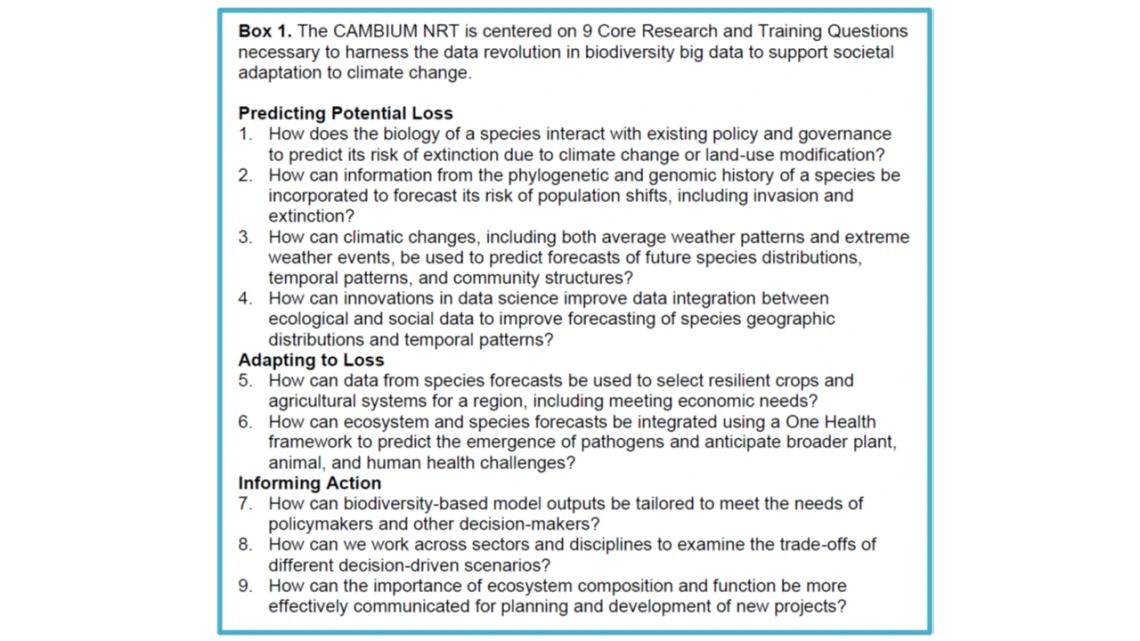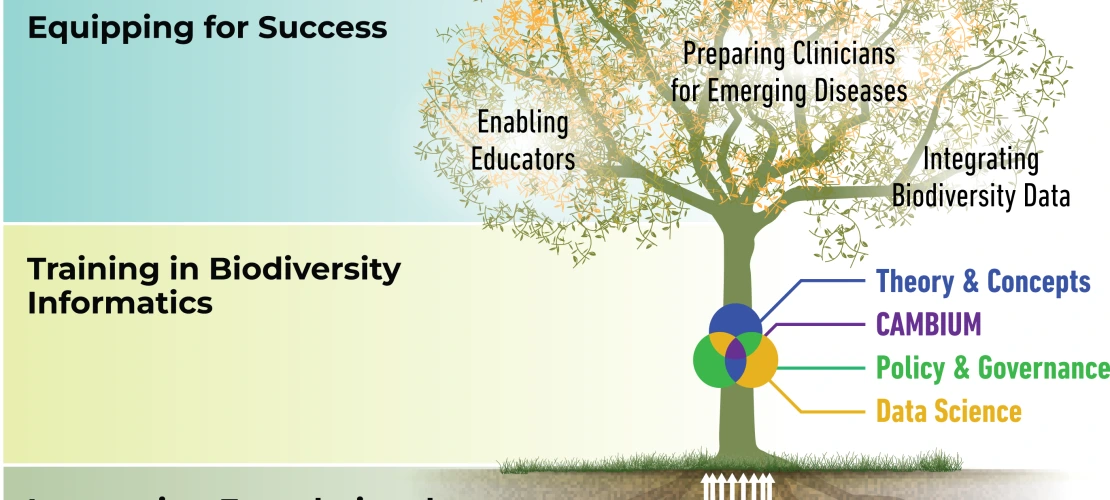Overview
Earth is at a biodiversity tipping point, with over one million species threatened with extinction as the result of climate change and human activity. Preventing this catastrophic loss of biodiversity is one of humanity's greatest challenges and requires innovative approaches that cross disciplinary boundaries. By integrating the One Health framework with the big data revolution, students will be better equipt to develop innovative, data-driven solutions to combat climate change and biodiversity loss.
CAMBIUM is a U.S. NSF-funded Research Traineeship Program aimed to prepare the next generation of scientists to leverage big biodiversity and social data to tackle and solve global challenges.

Program Goals
CAMBIUM will create a thriving, sustainable model for training scientists to work across disciplines and acquire the skills to use bioinformatics and big data integration to predict outcomes and inform decision-making. Training students in these skills will develop a workforce capable of managing large-scale databases linking state-of-the-art biodiversity data with other high-quality datasets to address challenges in a One Health framework, resulting in significant societal impacts.
Program Elements
Curriculum
Trainees major in one of the core graduate programs and complete the Certificate in Applied Biodiversity Informatics. They will also participate in biweekly research and professional development that will feature specialized training sessions, invited speakers and opportunities to communicate and showcase their individual research programs.
Integration Institute
The annual CAMBIUM Integration Institute brings together members of academia, industry, and government to discuss biodiversity data science. The 2.5-day meeting will be held at the end of each academic year will include keynote speakers from external institutions, presentations by past and present CAMBIUM Fellows, and review challenges, progress and future directions with the steering committee.
Required Skills and Competencies
CAMBIUM participants will receive formal training in communication during certification to be a Associate Member of the Center for the Integration of Research, Training and Learning (CIRTL). CIRTL provides professional development and certificate programs to prepare graduate students for careers in academia and beyond. They also receive focused teamwork training in EMBeRS workshops on the practice of Convergence Research Team Science to develop team-based training activities that integrate deep knowledge across disciplines and build teamwork skills.
Like the cambium of vascular plants—the layer of cells that provides secondary growth in trees—CAMBIUM will provide secondary growth to the primary skill sets of our fellows with interdisciplinary training in biodiversity informatics, pedagogy, policy, and translational science.

